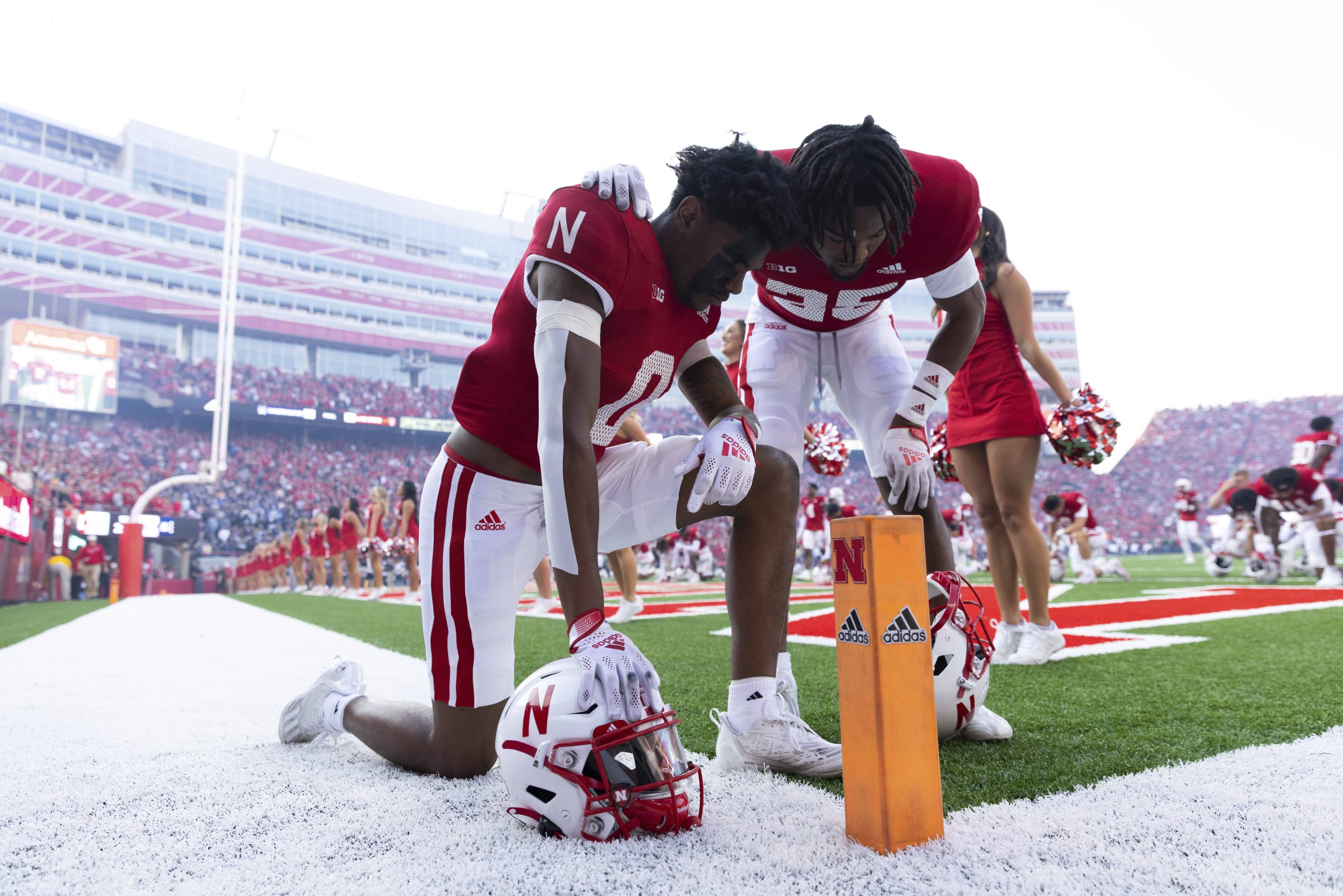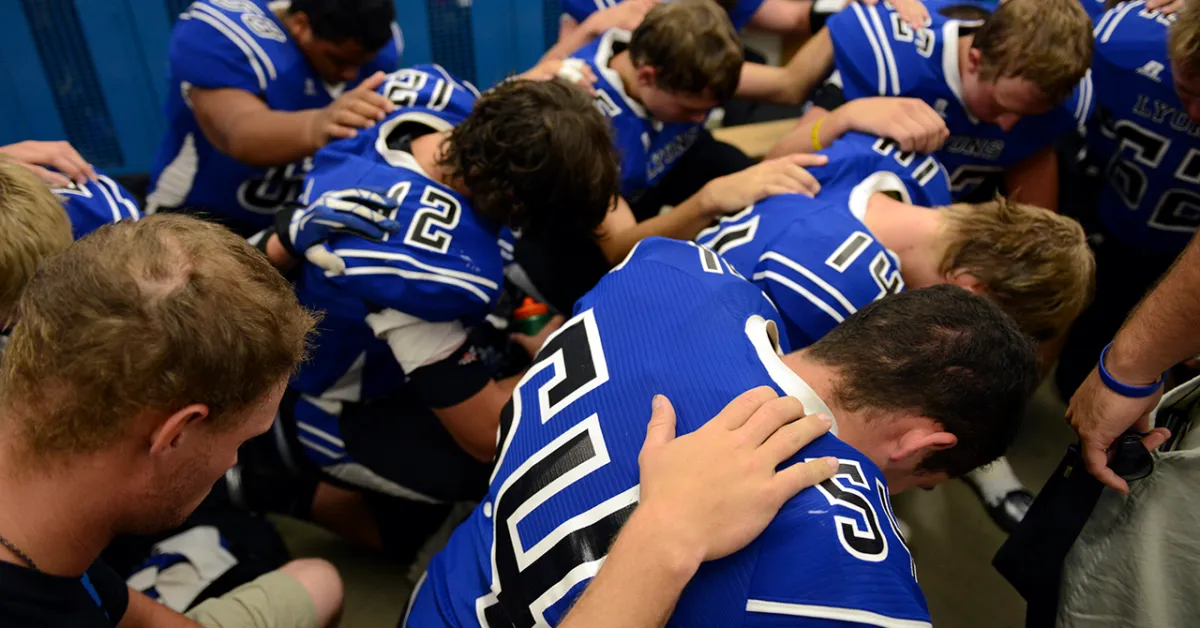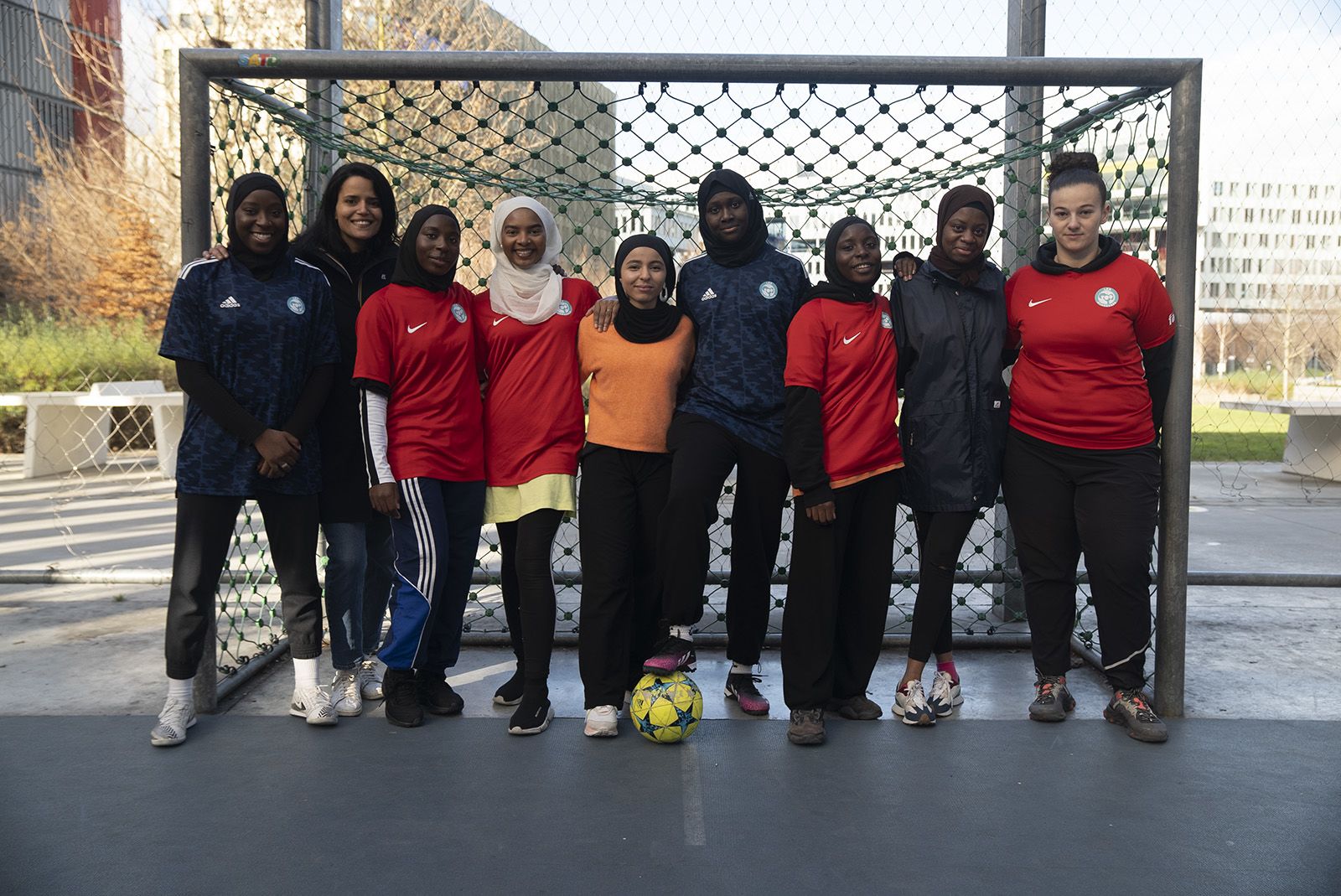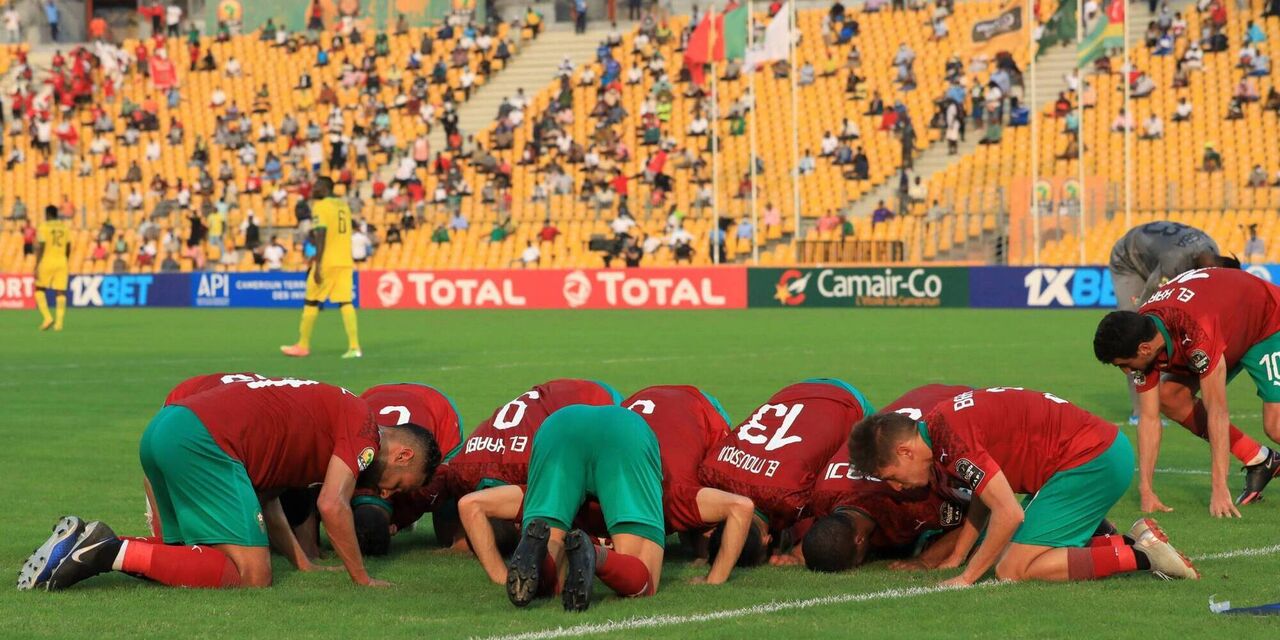The Heavenly Mix Of Religious Organizations And Sports Sponsorship
In the dynamic world of sports, partnerships and sponsorships play a crucial role in shaping the landscape. One intriguing facet of this collaboration is the intersection between religious organizations and sports sponsorship. This article delves into the multifaceted relationship, exploring its dynamics, implications, and the impact it has on both the religious entities and the sports industry.
Jan 16, 20244.3K Shares399K Views
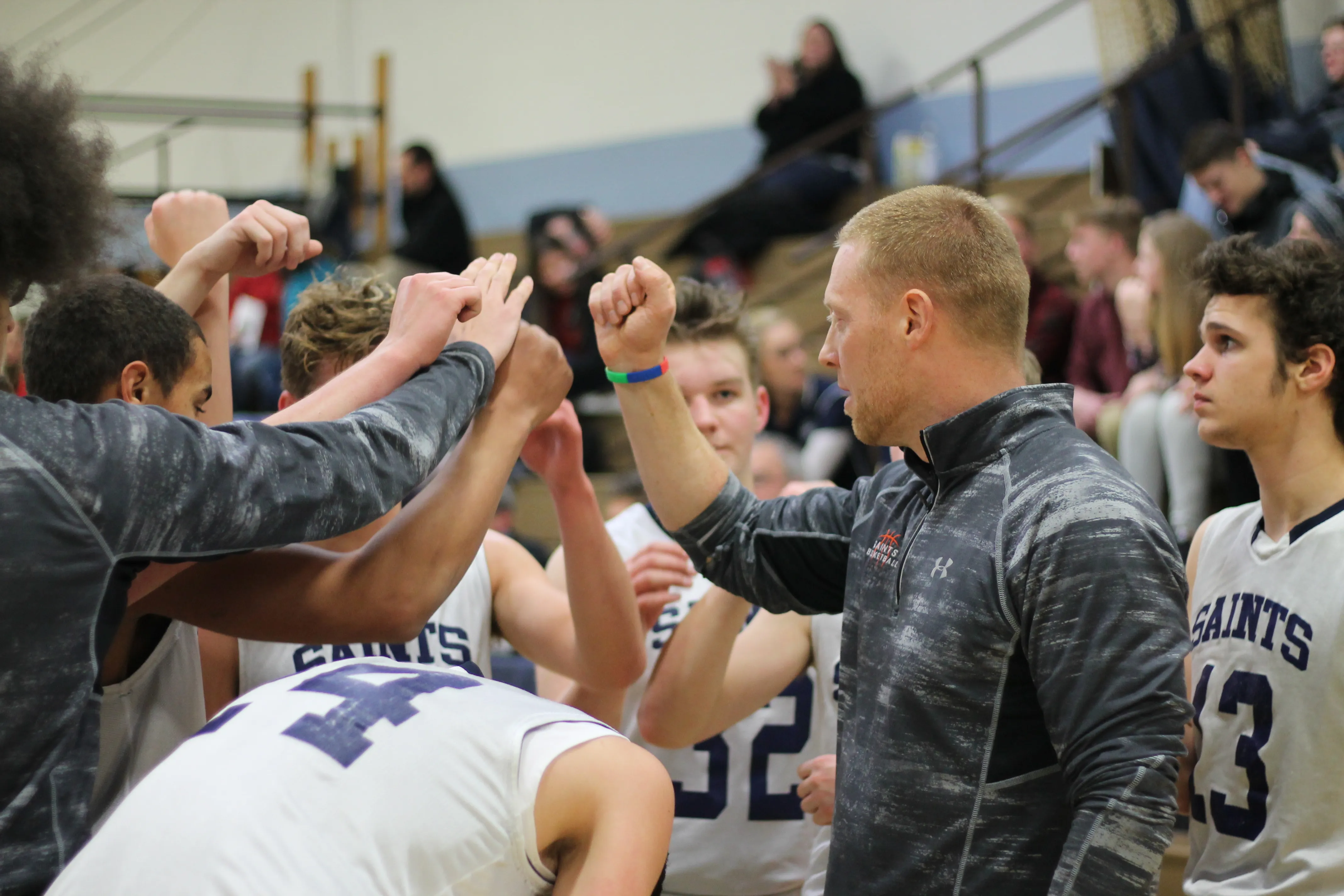
In the dynamic world of sports, partnerships, and sponsorships play a crucial role in shaping the landscape. One intriguing facet of this collaboration is the intersection between religious organizations and sports sponsorship. This article delves into the multifaceted relationship, exploring its dynamics, implications, and the impact it has on both the religious entities and the sports industry.
Understanding The Nexus
In exploring the symbiotic relationship between religious organizations and sports sponsorship, it's crucial to establish a foundational understanding of the key players in this dynamic partnership.
Defining Religious Organizations And Sports Sponsorship
Religious Organizations
Religious organizations constitute a diverse spectrum, spanning traditional denominations to the emergence of newer spiritual movements. These entities are bound by shared beliefs, rituals, and a commitment to fostering spiritual or moral well-being within their communities. The diversity within religious organizations sets the stage for a rich tapestry of affiliations with the world of sports.
Sports Sponsorship
On the flip side, sports sponsorship emerges as a pivotal catalyst for fueling athletic endeavors. It involves financial or in-kind support provided by businesses or organizations to sports teams, events, or individual athletes. In return for this support, sponsors expect promotional benefits, ranging from brand visibility to exclusive marketing opportunities.
The Exchange Of Support And Exposure
At its core, the relationship between religious organizationsand sports sponsorship is characterized by the exchange of support and exposure. Religious entities extend their support to sports teams or events, contributing to their success, while sponsors gain a platform to amplify their message through the widespread appeal of sports.
The Intersection Of Faith And Competition
As religious organizations and sports sponsorship converge, the intersection of faith and competition becomes a fascinating terrain to explore. The values upheld by religious entities often find resonance in the ethos of sportsmanship and fair play, creating a symbiosis that extends beyond mere financial transactions.
Shared Values
The shared values encompassed by religious organizations, such as discipline, perseverance, and community, align seamlessly with the principles integral to successful sportsmanship. This alignment becomes the bedrock upon which collaborations are built, transcending the boundaries of faith and sport.
Beyond Financial Support
In many instances, the support extended by religious organizations goes beyond financial contributions. These entities become pillars of moral and emotional backing for athletes navigating the challenges of competitive sports. The synergy between spiritual guidance and athletic pursuit becomes a compelling narrative within this symbiotic relationship.
Navigating Complexity - Challenges And Opportunities
Understanding the nexus between religious organizations and sports sponsorship involves navigating the complexities inherent in such collaborations. Challenges and opportunities arise as these two distinct realms converge, necessitating a nuanced approach to ensure the integrity of both faith and sportsmanship.
Balancing Act
One significant challenge lies in the delicate balance required to manage differing values. Religious organizations may find themselves navigating through a landscape where the values upheld in sports may not always align seamlessly with their own. Striking a harmonious balance becomes imperative to avoid potential conflicts and criticisms.
Public Perception
Public perception plays a pivotal role in the success of these collaborations. Both religious entities and sponsors must navigate the intricate dynamics of public opinion, ensuring that their association contributes positively to the narrative surrounding faith, sports, and the broader community.
Strategic Utilization Of Sports Sponsorship By Religious Organizations For Marketing Purposes
In the contemporary landscape, the strategic alliance between religious organizations and sports sponsorship offers a unique avenue for both entities to achieve their respective goals. For religious organizations, harnessing the power of sports sponsorship presents a compelling opportunity to not only convey their message but also engage with a diverse audience on a broader scale.
Here's an exploration of how a religious organization can strategically utilize and even capitalize on sports sponsorship for its marketing purposes. For more insights into the intersection of faith and community, you can visit Fellowship Bible Church Waco.
Leveraging Shared Values:
- Identification and Alignment:Religious organizations should carefully identify sports teams, events, or athletes whose values align with their own principles. This alignment forms the foundation of a genuine and impactful collaboration.
- Messaging Consistency:Ensure that the messaging remains consistent with the core values of the religious organization. This creates a seamless narrative that resonates with both religious followers and sports enthusiasts.
Community Engagement And Outreach:
- Targeted Demographics:Religious organizations can strategically target specific demographics by choosing sports entities that have a significant following within their desired audience. This ensures that the marketing efforts reach those most likely to resonate with the religious message.
- Event Participation:Actively participate in or host events associated with the sponsored sports entity. This engagement fosters a sense of community and provides an opportunity for direct interaction with the target audience.
Digital Presence And Innovation:
- Social Media Integration:Leverage the power of social media to amplify the reach of the sponsorship. Regularly share content, updates, and collaborative initiatives across various platforms to engage with a global audience.
- Interactive Campaigns:Implement innovative and interactive digital campaigns that encourage audience participation. This could include contests, live streams, or virtual events that blend the worlds of faith and sports.
Incorporating Faith Into Sports Narratives:
- Narrative Integration:Seamlessly integrate religious themes or narratives into the broader sports context. This could be reflected in promotional materials, events, or even through the athletes' own expressions of faith during competitions.
- Highlighting Positive Values:Emphasize positive values such as teamwork, perseverance, and community building, showcasing how these align with the religious organization's mission. This reinforces the positive impact of the collaboration.
Maximizing Public Relations Opportunities:
- Media Engagement:Actively engage with the media to share the story behind the collaboration. Highlight the shared values, community initiatives, and positive impacts on both the sports entity and the religious organization.
- Crisis Management:Develop a robust crisis management plan in case controversies arise. Being prepared to address potential challenges ensures that the positive aspects of the collaboration remain the focus.
Measuring And Analyzing Impact:
- Metrics and Analytics:Utilize metrics and analytics tools to measure the impact of the sports sponsorship on key performance indicators. This data-driven approach enables the religious organization to assess the effectiveness of the collaboration and make informed adjustments.
- Feedback and Evaluation:Collect feedback from the target audience and stakeholders. Evaluate the qualitative aspects of the collaboration to understand its resonance within the community.
The Positive Impacts Of Sport Marketing For Religious Organizations
The belief in the positive effects of sport marketingfor religious organizations stems from the recognition that this strategic approach can yield numerous benefits, not only for the church itself but also for society at large. By harnessing the power of sports marketing, religious organizations can create a ripple effect that extends beyond traditional outreach methods. We explore the potential positive impacts of this approach.
Enhanced Visibility And Outreach:
- Wider Audience Reach:Sport marketing provides a platform for religious organizations to extend their reach beyond the confines of the church walls. Aligning with popular sports teams or events allows them to connect with a diverse and expansive audience, fostering a sense of community on a broader scale.
- Global Impact:Leveraging sports sponsorship enables religious entities to transcend geographical boundaries, reaching individuals who may not have otherwise encountered their message. This global impact contributes to a more widespread dissemination of the organization's values and principles.
Community Building And Engagement:
- Shared Values with Sportsmanship:The synergy between religious principles and the values inherent in sportsmanship, such as teamwork and perseverance, fosters a unique sense of community. Sport marketing becomes a catalyst for building connections among individuals who share a common interest in both faith and sports.
- Event Participation:Actively participating in or hosting events associated with sports entities provides religious organizations with opportunities for direct engagement with the community. This involvement strengthens the sense of belonging and encourages active participation in both religious and sports-related activities.
Positive Brand Associations:
- Alignment with Positive Attributes:Associating with sports entities allows religious organizations to align themselves with positive attributes such as discipline, integrity, and fair play. These associations contribute to a positive public perception, enhancing the brand image of the church.
- Symbolic Significance:Collaborations with sports teams or athletes can carry symbolic significance, reinforcing the idea that religious principles are not incompatible with the enjoyment of recreational activities. This challenges stereotypes and presents a more inclusive image.
Inspiring Youth Engagement:
- Youth Appeal:Sports marketing has a unique appeal to the younger demographic. By aligning with sports, religious organizations can effectively engage with youth, offering a relevant and relatable platform to convey their message.
- Positive Role Modeling:Athletes often serve as role models for the youth. By associating with sports figures who exemplify positive values, religious organizations contribute to the cultivation of virtues and moral principles among the younger generation.
Amplified Outreach Through Digital Platforms:
- Social Media Amplification:The integration of sports marketing with digital platforms provides a dynamic channel for outreach. Social media, live streaming, and interactive content amplify the organization's presence, fostering engagement with a tech-savvy audience.
- Innovative Campaigns:Implementing innovative digital campaigns that blend elements of faith and sports can captivate a diverse online audience. This digital outreach serves as a contemporary and effective method for conveying the organization's message.
Positive Societal Impact:
- Promotion of Positive Values:By actively engaging in sports marketing, religious organizations contribute to the promotion of positive values within society. This impact extends beyond the church community, influencing the broader culture with principles of unity, respect, and moral integrity.
- Contribution to Social Well-being:The positive effects of sport marketing can extend to the overall well-being of society by fostering a sense of camaraderie and shared values. This contribution enhances the social fabric, promoting harmony and understanding.
Challenges And Controversies In Religious Organizations' Sports Sponsorship
The intersection of religious organizations and sports sponsorship, while potentially synergistic, is not without its challenges and controversies. Navigating these complexities demands careful consideration, strategic decision-making, and a nuanced approach to public relations.
Navigating Potential Conflicts
Differing Values And Ethical Considerations:
The coalescence of religious principles with the dynamics of the sports industry can give rise to conflicts stemming from differing values and ethical considerations. Issues such as commercialization, competitive intensity, or the portrayal of athletes may clash with the moral framework of religious organizations. Navigating these conflicts requires a delicate balance to ensure the integrity of both the faith and the sponsorship.
Controversies Within The Sports Industry:
The sports industry is not immune to controversies, ranging from ethical concerns to legal issues. Religious organizations must tread carefully when affiliating with sports entities embroiled in such controversies. Strategic decision-making becomes crucial to safeguard the reputation of the religious organization and maintain the intended positive impact of the sponsorship.
Public Perception And Criticism
Scrutiny From Religious Constituencies:
Religious organizations venturing into sports sponsorship may encounter scrutiny from within their religious constituencies. Some followers may question the alignment of sports activities with the spiritual mission of the organization. Navigating these internal dynamics demands transparent communication, emphasizing the shared values and positive outcomes of the collaboration.
Balancing Positive Exposure With Criticism:
Achieving a balance between the desire for positive exposure and potential criticism from both religious followers and the general public is a central challenge. The public perception of the collaboration can significantly impact the success of the sponsorship. Religious organizations must carefully craft communication strategies to highlight the alignment of values, the community-building aspect, and the intended positive contributions to both realms.
Addressing Controversial Topics:
In instances where the sports industry is entangled in controversial topics, such as social justice issues or political debates, religious organizations may find themselves navigating sensitive terrain. A proactive approach to addressing these concerns, coupled with a commitment to social responsibility, is essential to mitigate potential backlash and foster understanding.
Mitigating Challenges
Strategic Communication And Transparency:
Open and transparent communication is paramount in mitigating challenges. Religious organizations should proactively communicate the reasons behind their sports sponsorship, emphasizing the shared values and the positive impact on the community. Transparency builds trust and helps manage potential conflicts.
Community Engagement And Education:
Engaging with both religious communities and the wider public through community events, seminars, or digital platforms is a proactive strategy. Education on the motivations behind the sponsorship, coupled with a focus on the shared benefits, contributes to a more informed and supportive community.
Flexibility And Adaptability:
The ability to adapt and be flexible in response to evolving circumstances is crucial. Religious organizations may need to reassess their sponsorship affiliations based on changing dynamics within the sports industry or shifts in public sentiment.
Examining Successful Collaborations
To gain deeper insights into the dynamics of successful collaborations between religious organizations and sports sponsorship, let's explore notable case studies that highlight the positive impact of such partnerships.
FC Barcelona And UNICEF:
- Background:FC Barcelona, one of the most iconic football clubs globally, partnered with UNICEF, the United Nations Children's Fund, in a groundbreaking collaboration.
- Collaborative Approach:The partnership went beyond traditional sponsorship, with the FC Barcelona jersey featuring the UNICEF logo without any commercial branding. This unique approach reflected a shared commitment to social responsibility and humanitarian causes.
- Positive Outcomes:The collaboration resulted in increased awareness and support for UNICEF's global initiatives. FC Barcelona, through this partnership, demonstrated its dedication to contributing to positive societal change, emphasizing values that resonated with its diverse fan base.
Houston Rockets And Tzu Chi Foundation:
- Background:The Houston Rockets, a prominent NBA team, entered into a collaboration with the Tzu Chi Foundation, an international humanitarian organization rooted in Buddhist principles.
- Community Outreach:The collaboration extended beyond logo placements, focusing on community outreach initiatives. Tzu Chi volunteers actively engaged in local events, promoting environmental sustainability and disaster relief efforts.
- Mutual Benefits:The partnership not only provided the Tzu Chi Foundation with a platform to extend its charitable efforts but also enhanced the Rockets' community engagement. The synergy between the organization's commitment to compassion and the Rockets' dedication to community development contributed to a mutually beneficial relationship.
AS Roma And Humanitas:
- Background:AS Roma, a prominent Serie A football club, collaborated with Humanitas, a charitable organization providing health and social services.
- Healthcare Initiatives:AS Roma used its platform to raise awareness and funds for Humanitas' healthcare projects. The club actively participated in campaigns addressing issues such as mental health and pediatric care.
- Social Impact:The collaboration emphasized the intersection of sports and social responsibility. AS Roma's involvement in Humanitas' initiatives showcased the potential for sports organizations to contribute positively to critical societal issues beyond their primary realm of competition.
Golden State Warriors And Rakuten:
- Background:The Golden State Warriors, an NBA powerhouse, entered into a jersey sponsorship deal with Rakuten, a global technology and e-commerce company.
- International Visibility:Rakuten's logo featured prominently on the Warriors' jerseys, providing the Japanese company with increased visibility in international markets. The collaboration showcased how sports sponsorship could facilitate global brand exposure.
- Innovative Fan Engagement:Beyond the visual branding, the partnership included innovative fan engagement initiatives, such as exclusive content and promotions. This demonstrated how sports sponsorship could be leveraged for mutual business interests while enhancing the fan experience.
Key Takeaways:
These case studies underscore several key takeaways for successful collaborations between religious organizations and sports sponsorship:
- Beyond Logos:Successful collaborations go beyond mere logo placements, focusing on shared values, community engagement, and social impact.
- Holistic Involvement:The most impactful collaborations involve active participation in initiatives that align with the mission and values of both parties.
- Strategic Communication:Transparent and strategic communication is crucial to convey the purpose and positive impact of the collaboration to both internal and external stakeholders.
Religious Organizations And Sports Sponsorship - FAQs
What Are The 3 Types Of Sponsorship In Sport?
In sports, sponsorship typically falls into three primary categories:
- Title Sponsorship:This is the highest level of sponsorship, where a company or organization's name is incorporated into the name of the sports event, team, or facility. The sponsor enjoys exclusive branding rights and significant visibility.
- Presenting Sponsorship:In this type of sponsorship, the company's name is prominently associated with the event or team. While not integrated into the official title, the presenting sponsor receives substantial branding exposure and recognition.
- Official Sponsorship:This level involves a more generalized association, where the sponsor is recognized as the official provider of a particular product or service related to the sport. The branding may include a variety of promotional activities and signage.
Who Is The Biggest Sponsor In Sports?
Determining the single "biggest" sponsor in sports can be subjective and dependent on various factors such as the specific sport, region, and time frame. However, some of the globally recognized major sponsors in sports include:
- Nike:As a leading sportswear and equipment brand, Nike has established itself as a significant sponsor across multiple sports, with high-profile partnerships and endorsements.
- Adidas:Another prominent sportswear brand, Adidas, engages in extensive sports sponsorships, collaborating with teams, athletes, and major sporting events.
- Coca-Cola:As a beverage giant, Coca-Cola is renowned for its widespread sponsorships in sports, including partnerships with major sporting leagues, events, and teams.
- PepsiCo:Similar to Coca-Cola, PepsiCo is a major player in sports sponsorships, with involvement in various sports through partnerships, endorsements, and event sponsorships.
How Do I Get Companies To Sponsor My Sports Team?
Securing sponsorship for a sports team involves a strategic and proactive approach. Here are key steps to attract potential sponsors:
- Define Your Value Proposition:Clearly articulate what your sports team can offer sponsors, including exposure, demographics, and the unique aspects that make your team appealing.
- Create a Professional Proposal:Develop a comprehensive sponsorship proposal outlining the benefits of sponsoring your team. Include details about exposure, promotional opportunities, and potential return on investment for sponsors.
- Identify Potential Sponsors:Research companies that align with your team's values and target audience. Reach out to those with a history of sports sponsorships or a vested interest in your specific sport.
- Develop Relationships:Establish connections with potential sponsors through networking, meetings, and presentations. Building a relationship helps sponsors understand your team and its potential impact.
- Offer Customized Packages:Tailor sponsorship packages to meet the specific needs and objectives of potential sponsors. This might include branding opportunities, promotional events, or exclusive access.
- Showcase Success Stories:Highlight successful partnerships with previous sponsors, emphasizing the positive outcomes and return on investment they experienced by supporting your team.
- Utilize Digital Platforms:Leverage social media and digital platforms to increase your team's visibility. Showcase engagement levels, fan demographics, and the reach of your team's content to attract sponsors seeking broad exposure.
Conclusion
In the evolving tapestry of sports sponsorship, the collaboration between religious organizations and the sports industry introduces a compelling dimension. As these partnerships continue to shape the narrative of both religious outreach and sports promotion, the intricate dance between values, objectives, and public perception will undoubtedly play a pivotal role in defining the future landscape of this unique alliance.
Jump to
Understanding The Nexus
Strategic Utilization Of Sports Sponsorship By Religious Organizations For Marketing Purposes
The Positive Impacts Of Sport Marketing For Religious Organizations
Challenges And Controversies In Religious Organizations' Sports Sponsorship
Examining Successful Collaborations
Religious Organizations And Sports Sponsorship - FAQs
Conclusion
Latest Articles
Popular Articles
